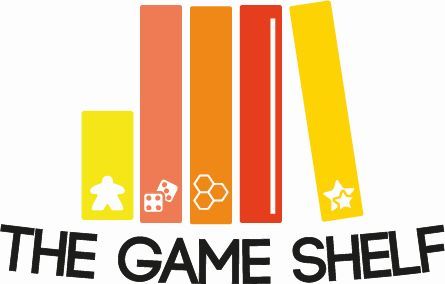Game Title:
Hanabi
Designer: Antoine
Bauza
Manufacturer:
R&R Games
Year: 2010
 I looked down at my
newest group of pupils, they looked scared, terrified even, and who could blame
them? Not many people lasted long here. At a glance you could tell from the
burns on my face, though perhaps it was the chemically-induced rasp to my voice
that was leaving my class ill at ease. "Let's go over the basics again,
Lithium, red, Sodium, yellow, Magnesium, white, Barium, green, Copper, blue.
The colour is vitally important, particularly as some of these compounds will
react violently with each other, do you understand?" The four of them all
nodded solemnly, I could almost hear the internal pledges each made that they
were going to survive this "The
people demand a show, I demand a
show and you don't want to disappoint me" The class shook their heads
"We have 1 hour class, I'll just check your blindfolds, then it's time to
play a little game..."
I looked down at my
newest group of pupils, they looked scared, terrified even, and who could blame
them? Not many people lasted long here. At a glance you could tell from the
burns on my face, though perhaps it was the chemically-induced rasp to my voice
that was leaving my class ill at ease. "Let's go over the basics again,
Lithium, red, Sodium, yellow, Magnesium, white, Barium, green, Copper, blue.
The colour is vitally important, particularly as some of these compounds will
react violently with each other, do you understand?" The four of them all
nodded solemnly, I could almost hear the internal pledges each made that they
were going to survive this "The
people demand a show, I demand a
show and you don't want to disappoint me" The class shook their heads
"We have 1 hour class, I'll just check your blindfolds, then it's time to
play a little game..."
Hanabi is a 2-5 player cooperative card game where you try
to build up 5 or 6 different fireworks. The game could be described as
multiplayer solitaire, but with a big twist, you can see everyone’s cards but
your own, and you aren’t allowed to share that information freely. The game
becomes one of risk management and trying to read into the reason that someone
has fed you the occasional tidbit of information.
The game has 6 colours, each of which have cards numbered
1-5. You have to play them in numerical order, which sounds easy enough until
you try. Each turn you do one of three actions, firstly you can give clues. You
have 8 clues that can be used to tell someone about their hand, the information
can be either about a number or a colour, however you have to tell them about
all of that type in their hand. If someone has three 3’s you have to let them
know about all of them, you can’t just tell them about the one they need to
play. The only way to get clues back is to either finish a stack of fireworks
up to 5, or to do the second action: discarding. Discarding means you throw
away a card from your hand (better hope you don’t need it) to get back a clue,
simple enough. The discard pile is always visible so you should know when
you've ruined your chances for a particular colour. Finally you can play a
card, when you do this you take it from your hand and put it on the relevant firework
stack. However if you have played something out of its correct order then you
lose a fuse token, should you use all 3 fuse tokens then the fireworks blow up
before being launched and you lose the game!
 |
| The game's initial setup, the fuses and clue tokens are to the right, both players always have a hand of 5 and the draw deck is on the left. |
That’s really about it when it comes to gameplay, the game
is simple, but it really shines in my opinion for making you make difficult
decisions “Surely if this card was good someone would have told be by now!?” or
“Why would they tell me about this 4 if it weren’t the one I need to play?”.
The game is about trying to read everything you can into the limited
information you get. You may find yourself getting frustrated when one of your
friends forgets that the 2 you told them about is red, which you told them 4
turns ago, but it’s just a matter of time before you make the same mistake.
Hanabi does have a lot going for it for a small game; it’s
only a little bit bulkier than a standard pack of cards so it’s very portable.
It has a handful of variant game modes included in it which adds to the
lifespan of the game. It also manages to avoid the coop issue of 1 player
taking over because you aren’t allowed to tell each other what to do, all you
are allowed to say is colours and numbers, and that’s only at the cost of a
clue and an action. The game does have
its flaws though, the game can be completely unwinnable. The game ends, with one more turn each, when
you can’t draw and sometimes that last card is the card you've desperately been waiting for, similarly if
both the 2s of a colour end up right at the bottom you may not have time to
build the firework even if you somehow knew exactly what to play. The game can
also be less enjoyable when people decide to drop massive hints through their
body language (“This card is a 4, as are these three, but THIS CARD IS A FOUR,
okay?”), also the game can be entirely cheapened by playing with a psychic!
7/10

No comments:
Post a Comment